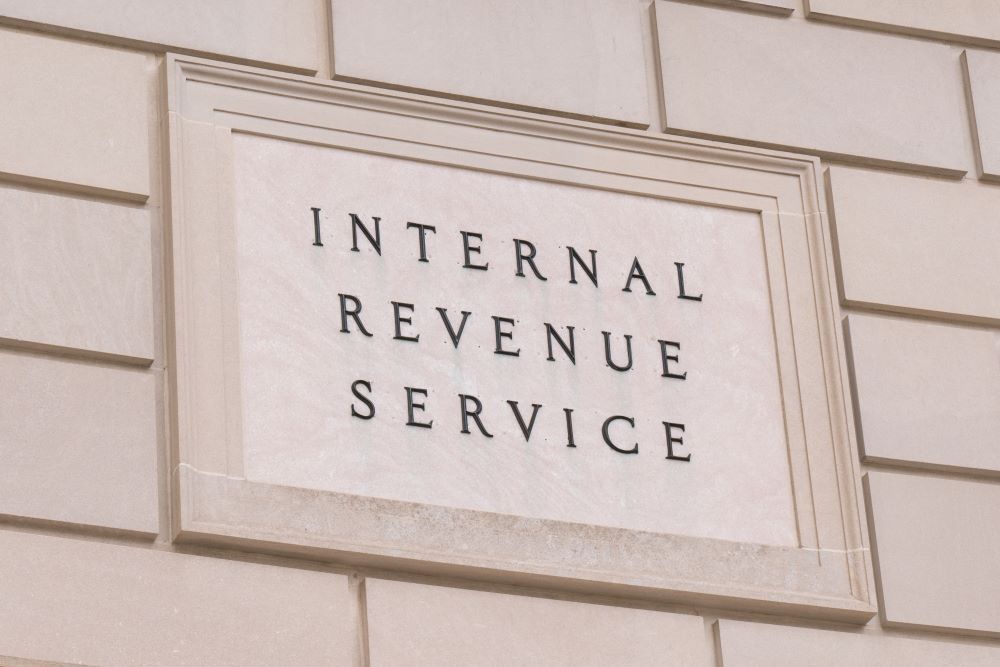
August 7, 2023

The Employee Retention Tax Credit (ERTC) is the last remaining pandemic-era incentive still available to eligible companies. Although the program officially ended almost two years ago, eligible companies have another year (for 2020 activities) and two years (for 2021 activities) to submit a claim. This time was originally provided to allow a company to make a claim well after the pandemic ended. Unfortunately, it has also created unexpected issues resulting in a high number of fraudulent claims being filed. The result is many businesses have not only had to repay the claimed amount but have also been subject to penalties and interest.
Over the last few months, the IRS has issued several warnings about companies using misleading or deceptive practices to encourage businesses to apply. While past activities were focused on simply issuing warnings, the IRS recently announced a change in strategy. On July 26th, it was announced the agency will now increase scrutiny on dubious submissions while providing additional warnings and tips about aggressive marketing. To help clients, prospects, and others, Wilson Lewis has provided a summary of the key details below.
IRS Commissioner Danny Werfel recently spoke at an Atlanta roundtable of tax professionals, saying that the IRS has moved their efforts to increasing compliance work and fraud-fighting measures to combat businesses and promoters filing dubious ERTC claims. At the beginning of the pandemic, legitimate claims made up most applications. Now, the IRS is seeing a higher proportion of illegitimate claims being filed. One of the biggest culprits contributing to this questionable activity comes from promoters using aggressive marketing campaigns that encourage businesses to apply, despite not being eligible for the credit.
Affected businesses that are eligible would file for the period between March 13, 2020, and December 31, 2021. However, they can file claims for the credit through April 15, 2025. While some confusion may stem from the program being amended three times by Congress, the bigger issue really lies with the marketing campaigns that businesses may be more likely to hear about. These promotions can be harmful for businesses that believe they are filing legitimately, cause problems for the IRS and tax professionals, and leave the promoters relatively unscathed.
Werfel said the IRS plans to work alongside the Treasury to come up with more legislative measures that can “address fraud and error” stemming from fraudulent advertisements. One outcome may be changing the credit submission date to end earlier. Another may be adding more focus to IRS oversight of those preparing the returns.
Since the ERTC started, 2.5 million claims have come in, and as of mid-July, 99% of claims are about 3 months old, pointing to the significant efforts the IRS has taken on to process applications quickly.
Auditors that look at ERC claims are being trained, and the IRS Criminal Investigation division is also looking into fraudulent activity and promoters of these claims.
This refundable tax credit was meant for companies that experienced full or partial suspensions of their business operations due to COVID-19 government orders, or those that had a “significant decline in gross receipts” during the previously mentioned period and continued to pay their employees. This is only open to businesses and not individuals. A memorandum came out on July 21 from the IRS that outlined rules for five different scenarios.
Businesses that meet the following requirements may be eligible:
Some preparers have said that all supply chain disruptions qualify for this credit, for example, but the IRS has stated that only those that happened due to a government order would qualify.
Businesses that improperly file for the ERTC will be required to pay it back, and there may also be interest and penalties included. Even if businesses get scammed by promoters, they may face these consequences, so it’s important to understand the program prior to filing.
Fraudulent advertisements may include one or more of the following hallmarks. Businesses may receive unsolicited calls that say the ERTC is an “easy application process.” They may promise to be able to determine program eligibility in minutes. Taxpayers that speak with these promoters may hear about large upfront fees or percentage-based fees to claim the credit. If the promoter claims the business is qualified quickly, before assessing their tax situation, this is also a red flag. Promoters may also say that there is nothing to lose by filing, but then refuse to sign the ERTC return.
While some promoters may simply be looking to claim a fee or profit off of illegitimate filings that don’t get approved, others may also be looking to steal the identity of the taxpayer. Simply put, if the process is billed as easy or risk-free, fraud is likely.
Promoters may reach out via direct mail, or businesses may hear about the credit on radio, television, or online ads. They may also call the business or send text messages about the employee retention tax credits. This activity is often paired with inadequate details around eligibility requirements or calculating the credit.
Contact Us
Before applying for the Employee Retention Tax Credit, it is essential to ensure the business meets eligibility criteria. The consequences of making such a claim can be very costly. For this reason, it is important to consult with a CPA, or other qualified advisor, to ensure you are eligible. If you have questions about the information outlined above or need assistance with a tax or accounting issue, Wilson Lewis can help. For additional information call 770-476-1004 or click here to contact us. We look forward to speaking with you soon.